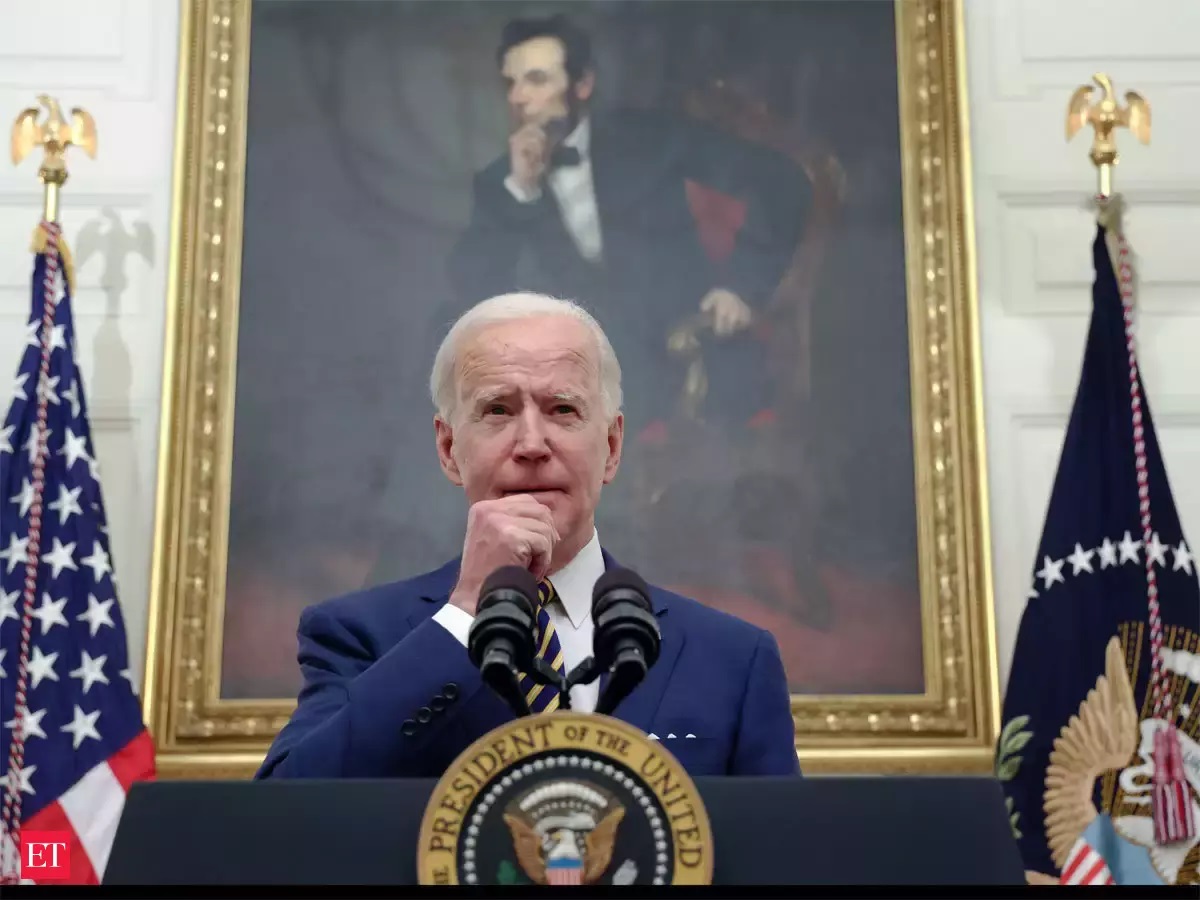
(World Politics Review, 27.Jul.2021) — The word corruption tends to evoke images of self-dealing politicians and bureaucrats, and for good reason. In Central America, graft is so endemic among public officials that it constitutes a “root cause” of out-migration from the region, according to U.S. President Joe Biden’s administration.
But the private sector can play just as central a role in sustaining corruption. In recent years, traditional business elites in Central America have bankrolled efforts to roll back progress made by prosecutors and civil society groups to strengthen the rule of law.
This poses a key challenge for the Biden administration. While it has shown a willingness to take on corrupt politicians in the so-called Northern Triangle countries of El Salvador, Guatemala and Honduras, it must also develop a strategy for dealing with big businesses. Otherwise, the push to reignite anti-corruption reforms in the region could sputter out.
Biden’s early efforts to tackle endemic graft in Central America have been promising. On July 1, the State Department published a list of 55 current and former officials from the Northern Triangle countries who have allegedly engaged in corruption, obstruction of justice or the undermining of democratic institutions. Those named in the so-called Engel List—after Eliot Engel, the former lawmaker who served as chair of the House Foreign Affairs Committee—will be barred from entering the United States. They may also soon face a much broader range of consequences, from asset freezes to bans on doing business with U.S. banks and companies, under the Global Magnitsky Act.
The Engel List’s designees reflect the unique mix of problems in each of the Northern Triangle countries. For example, it includes four top officials in Salvadoran President Nayib Bukele’s government, including two of his closest advisers who allegedly helped pack the Supreme Court and Attorney General’s office with loyalists. Also listed were members of El Salvador’s main opposition parties, ARENA and FMLN. Bukele, for his part, seemed unphased, sarcastically tweeting, “Thanks, but we have our own list”—a reference to Bukele’s investigations into his domestic rivals.
In Guatemala, the Engel List highlights corruption in the judiciary, which has eaten away at the country’s hard-won rule of law gains since the late 2010s. Two currently serving top judges were included, as well as three lawyers from the far-right Foundation Against Terrorism, an NGO that frequently harasses independent prosecutors and judges.
In Honduras, the targets were primarily lawmakers, reflecting the extensive network that links the country’s political parties to organized crime. An ex-president with alleged ties to organized criminal groups, Porfirio Lobo Sosa, also made the list, along with his wife.
In the Northern Triangle, where state institutions are weak, the private sector has always loomed large.
As critics were quick to point out, the list was not exhaustive. Notably absent were Honduran President Juan Orlando Hernandez, accused in a U.S. court of bribery and drug trafficking ties, and members of Guatemala’s current government, which the Biden administration is quietly—and unrealistically—counting on as its most reliable regional partner.
Also absent from the Engel List are traditional business elites.
That’s not because they’re irrelevant. In the Northern Triangle, where state institutions are weak, the private sector has always loomed large. Under 20th-century military juntas, business associations like Guatemala’s Coordinating Committee of Agricultural, Commercial, Industrial and Financial Associations—known by its Spanish initials CACIF—exercised veto power over economic policy. As the Northern Triangle countries transitioned to democracy in the 1980s and 1990s, business elites became experts at illicitly financing political campaigns, usually in exchange for public contracts. Benefits accrued to the few: Roughly a dozen powerful families dominate the agriculture, construction, banking and energy sectors in Honduras, and the picture is similar in Guatemala and El Salvador.
But big business has not always been a friend of the political status quo in Central America. Northern Triangle business associations have sometimes backed the anti-graft fight, if only for fear that unchecked corruption could drive away international investors and enrich domestic rivals.
CACIF, for example, was an early supporter of the United Nations-backed Commission Against Impunity in Guatemala, or CICIG, and later voiced support for the “Guatemalan Spring” protests of 2015, a major turning point in the country’s fight against corruption. But when CICIG and local prosecutors produced evidence of over $1 million in illegal campaign contributions by private companies during the 2015 general elections, CACIF joined forces with former military officers and then-President Jimmy Morales, also under investigation for corruption, to fight back. Its members spent more than $135,000 to lobby the Trump administration to pull support for the CICIG—a large sum for an impoverished country. This contributed to the historic commission’s shuttering in 2019.
Similarly, in El Salvador, business tycoons have been fair-weather friends to the rule of law. The country’s leading business association, ANEP, which has historically been close to the conservative ARENA party, took to denouncing corruption only after the leftist FMLN won elections in 2009. ANEP initially supported creating a CICIG-like international commission to fight corruption, but its members became vocal critics of the commission after they saw that it was investigating private sector corruption. Following Bukele’s landslide election victory in 2019, ANEP’s president has become a fierce critic of the president, but several of El Salvador’s richest families have remained silent about Bukele’s efforts to undermine the country’s democratic institutions.
Of the three Northern Triangle countries, Honduras’ private sector association, COHEP, has been the most consistent supporter of anti-corruption efforts, at least in public. Its president criticized the 2020 shutdown of the country’s Organization of American States-backed anti-graft commission, the Mission Against Impunity and Corruption in Honduras, or MACCIH. But this could be because Honduran investigators have rarely investigated private businesses. On one occasion in 2019, when MACCIH’s investigators began to probe corruption by an energy-producing company owned by one of the country’s wealthiest families, COHEP leaders held a press conference to criticize the commission. Moreover, COHEP supported Juan Orlando Hernandez’s unconstitutional 2017 reelection bid, in a voting process rife with fraud.
Of course, no country’s private sector is a monolith, and some business leaders have advocated for anti-corruption reforms. In Guatemala, a group known as the National Committee of Entrepreneurs, or CNE, have come together to support a more inclusive, transparent economic and political agenda and defend the rule of law. In Honduras, the head of the Chamber of Commerce of San Pedro Sula, Pedro Barquero, has also been a voice in the wilderness calling for tougher anti-corruption enforcement, even when it hasn’t been popular.
But these reform-minded business figures are waging a lonely battle, and the United States could be doing much more to provide supporting fire. The Biden administration should be using all of the tools available to tackle corruption: using sanctions and other punitive designations against business owners who contribute to or benefit from corruption, while naming and shaming corrupt business leaders and companies in the State Department’s annual human rights reports. U.S. officials should also ensure that bilateral or multilateral loans are not awarded to corrupt companies or individuals in the region. Just as important is engagement with Central American counterparts, encouraging them to enact fiscal reforms to prevent the looting of government coffers and guarantee that governments have the resources to address the social and economic problems facing their countries.
Lastly, Biden would be wise to follow through on an executive order he issued in February and begin a collaborative, interagency review of the Dominican Republic-Central America Free Trade Agreement. Per the executive order, the aim of this review would be “to ensure that unfair labor practices do not disadvantage competition.” The review should look into the feasibility of including a democratic and human rights clause to prioritize these values in any future trade agreement with the region.
The Biden administration is spending a considerable amount of political capital on tackling corruption in Central America. For too long, economic elites have been overlooked in that effort. Now is the time to change that.
____________________
By Adriana Beltrán, Will Freeman. Adriana Beltrán is program director for citizen security at the Washington Office on Latin America.

